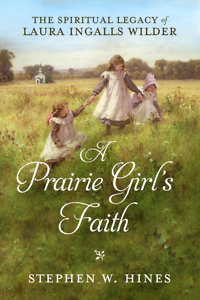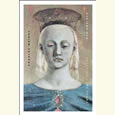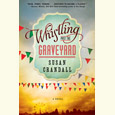The Spiritual Legacy of Laura Ingalls Wilder
Stephen W. Hines considers the religious faith of a very famous pioneer
“Whatever else they are, Laura’s books are a story about building a home in the wilderness,” writes Stephen W. Hines in A Prairie Girl’s Faith: The Spiritual Legacy of Laura Ingalls Wilder. “The sacredness of home and hearth are everywhere present.” A scholar of the Little House series and of subsequent writing by Wilder, Hines approaches his subject with reverence and admiration.

Generations of children have grown up reading the books of Laura Ingalls Wilder, beginning with Little House in the Big Woods, published in 1932, which introduces the Ingalls family as they strive against adversity to create a home in the woodlands of Wisconsin during the 1870s. Seven volumes followed, each describing the family’s travels, trials, and joys. A ninth book, The First Four Years, released after Laura Ingalls Wilder’s death, describes Laura’s early life as a wife and mother.
Although Hines includes extensive notes, a bibliography, and appendices, A Prairie Girl’s Faith is not a scholarly treatise. Instead, it is a gentle and affectionate look at what the author calls Wilder’s “quiet-voiced religion.” He begins with the influence of the elder Ingalls’ faith, especially Ma’s Bible lessons and Pa’s love of music, including hymns. When Sunday worship was possible, the family preferred Congregationalist or Methodist churches, and helped to found a church in Walnut Grove, Minnesota. As a child, Laura notably won a Bible at Sunday school for memorizing the most Scripture verses.
 Life as a homesteader in remote areas of the American West brought many hardships: physically demanding work; devastating weather; crop failure; the unexpected deaths of loved ones, especially children, from illness or accident; and isolation, homesickness, and depression. For many pioneers, religious faith provided necessary hope and solace. Church offered community support and friendship. As Hines puts it, “The certainties of one’s heavenly home go far when each new day can bring new peril.”
Life as a homesteader in remote areas of the American West brought many hardships: physically demanding work; devastating weather; crop failure; the unexpected deaths of loved ones, especially children, from illness or accident; and isolation, homesickness, and depression. For many pioneers, religious faith provided necessary hope and solace. Church offered community support and friendship. As Hines puts it, “The certainties of one’s heavenly home go far when each new day can bring new peril.”
Based on his study of Wilder’s original manuscripts, Hines believes that Rose Wilder, who did not share her mother’s religious views, edited the Little House books with an emphasis on the independent spirit of the American pioneer, downplaying her mother’s religious faith. Hines cites passages from the newspaper columns Laura Ingalls Wilder wrote for the Missouri Ruralist for many years, beginning in 1911, as more overt evidence for profound religious convictions that are only hinted at in the Little House books: “I realize that all my life the teachings of those early days have influenced me,” she wrote in one column, “something I have tried to follow, with failures here and there, with rebellion at times, but always coming back to it as the compass needle to the star.”

A graduate of Auburn University, Tina Chambers has worked as a technical editor at an engineering firm and as an editorial assistant at Peachtree Publishers, where she worked on books by Erskine Caldwell, Will Campbell, and Ferrol Sams, to name a few. She lives in Chattanooga.


